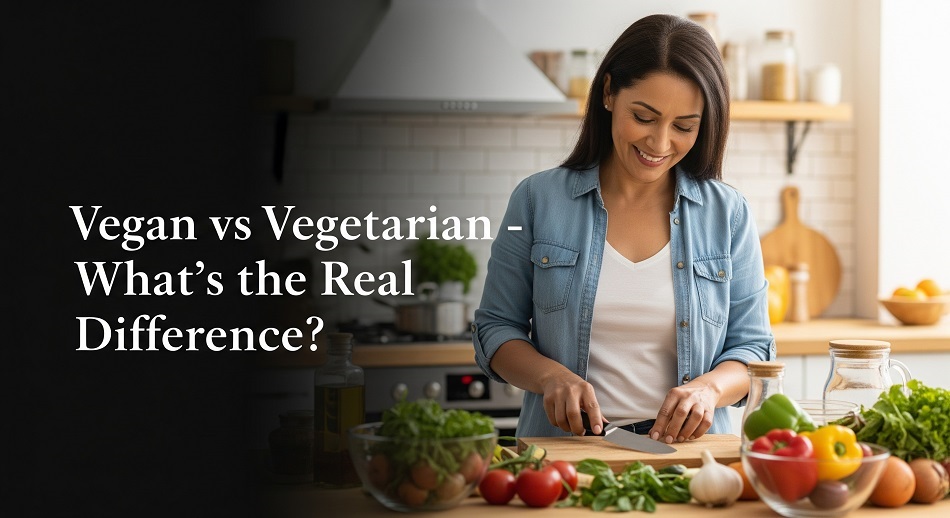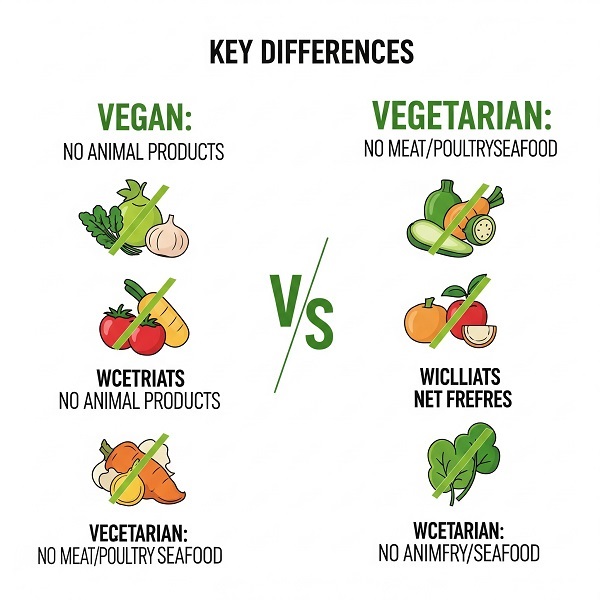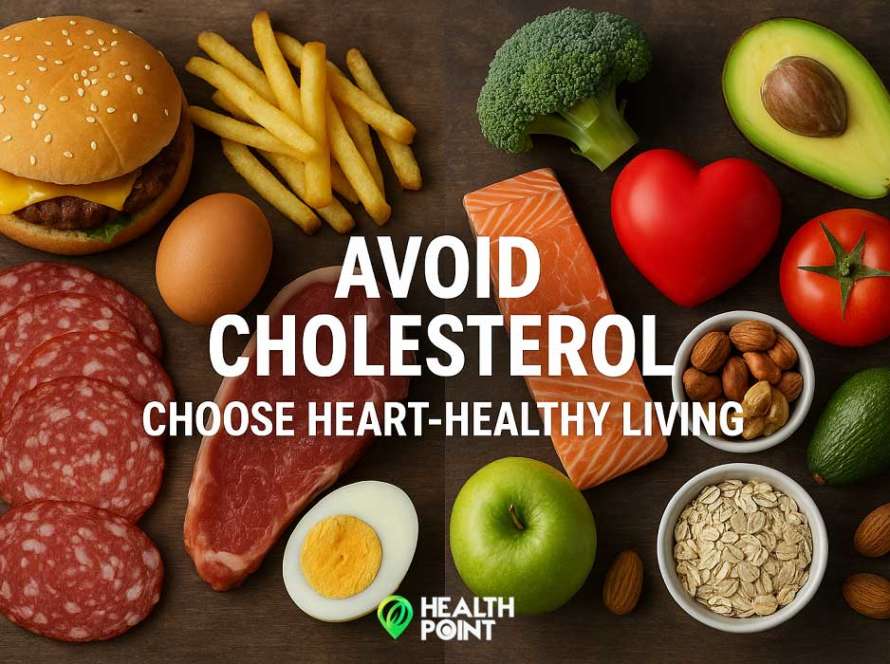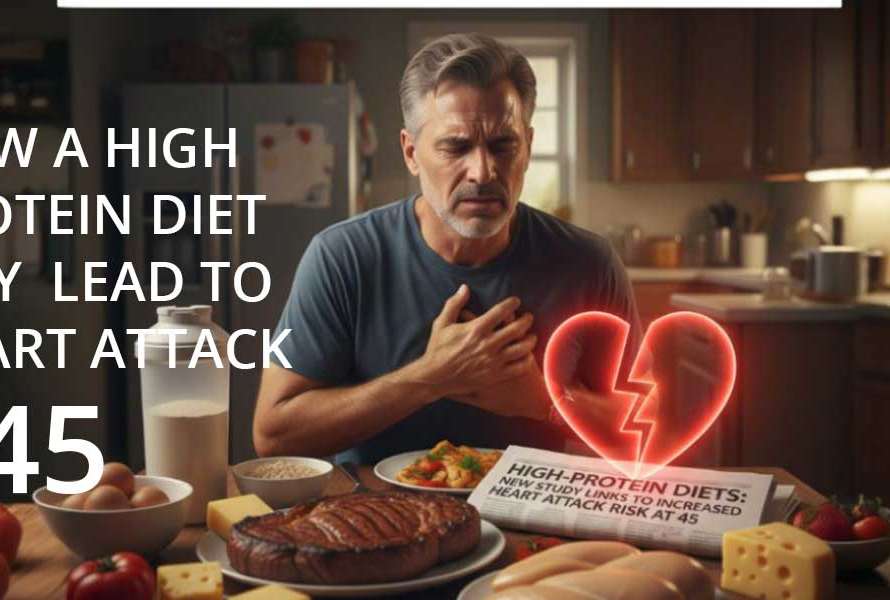
Many people are switching to plant-based diets today, but the terms vegan and vegetarian are often used interchangeably. However, they are not the same. Understanding the differences between a vegan and a vegetarian diet can help you make better food choices for your health and lifestyle.
Whether you’re planning to switch diets or just want to know more, this guide explains everything in simple words.

What Is a Vegetarian Diet?
A vegetarian diet avoids all types of meat, poultry, and fish. However, vegetarians do consume some animal products like:
Milk
Cheese
Butter
Yogurt
Eggs (optional, depending on the type of vegetarian)
There are several types of vegetarians based on what they choose to include:
Lacto-vegetarian – Eats dairy but avoids eggs.
Ovo-vegetarian – Eats eggs but avoids dairy.
Lacto-ovo vegetarian – Eats both dairy and eggs.
Many people follow a vegetarian diet due to religious beliefs, ethical reasons (like animal welfare), or health benefits such as reduced cholesterol, lower risk of heart disease, and better digestion.
✅ Fun Fact: India has one of the largest vegetarian populations in the world due to cultural and religious practices.
What Is a Vegan Diet?
A vegan diet is stricter than vegetarianism. Vegans avoid all animal-based products, not just meat and fish. This includes:
Milk and other dairy products
Eggs
Honey
Gelatin (a product made from animal bones or skin)
Vegans rely entirely on plant-based foods, including:
Fresh fruits and vegetables
Whole grains and legumes (beans, lentils, chickpeas)
Nuts, seeds, and plant oils
Fortified plant-based milk (soy, almond, oat, or coconut milk)
For many, veganism is not just a diet, but a lifestyle. They avoid using animal products in clothes, shoes, bags, and cosmetics.
🌱 Example: Instead of leather, vegans prefer items made from synthetic or plant-based alternatives like cork or recycled materials.
Vegan and Vegetarian Diet: The Core Difference
The main difference between a vegan and vegetarian diet lies in the use of animal products. While vegetarians may still consume eggs and dairy, vegans avoid everything that comes from animals.
This core difference affects how people plan their meals and get essential nutrients. Vegans must find alternative plant-based sources for:
Vitamin B12 – commonly found in animal products
Iron – especially non-heme iron from plants
Calcium – usually obtained from dairy
Omega-3 fatty acids – mainly found in fish and eggs
To learn more about creating a healthy and balanced vegetarian or vegan diet, visit HealthPoint.co.in – a trusted source for simple and useful health tips.
🍎 Expert Advice – Dr. Virendra Singh, Nutritionist
“Switching to a vegetarian or vegan diet can offer major health benefits like better digestion, improved heart health, and even weight loss,” says Dr. Virendra Singh, senior nutritionist.
“But don’t jump in blindly. Vegans especially need to plan their meals carefully to get enough protein, B12, and iron. Include a variety of foods to meet your daily nutrition needs. A poorly planned diet may lead to deficiencies.”
Key Differences at a Glance
| Criteria | Vegetarian Diet | Vegan Diet |
|---|---|---|
| Meat & Fish | Not allowed | Not allowed |
| Dairy (milk, cheese) | Allowed | Not allowed |
| Eggs | Sometimes (depends on type) | Not allowed |
| Honey | Allowed | Not allowed |
| Gelatin | Sometimes allowed | Not allowed |
| Focus Foods | Plant foods + dairy/eggs | Only plant-based foods |
Which One Is Better?
There is no one-size-fits-all answer. Both vegetarian and vegan diets can be healthy when well-planned. The best diet depends on your personal beliefs, health goals, and lifestyle.
Choose a Vegetarian Diet if:
You want to avoid meat but still enjoy dairy and eggs
You prefer a less restrictive diet
You’re transitioning slowly into plant-based eating
Choose a Vegan Diet if:
You want to completely avoid all animal products
You believe in a cruelty-free, eco-conscious lifestyle
You are motivated by climate change or animal welfare
Whatever you choose, make sure your diet is nutrient-rich and balanced. Here’s what your daily meals should include:
Protein – Lentils, beans, tofu, tempeh
Calcium – Fortified plant milk, leafy greens, sesame seeds
Healthy fats – Avocados, olive oil, nuts, and seeds
Iron – Spinach, legumes, pumpkin seeds
Vitamin B12 – Fortified cereals or supplements (especially for vegans)
Visit HealthPoint for more helpful diet plans and wellness articles that support a healthy lifestyle.


